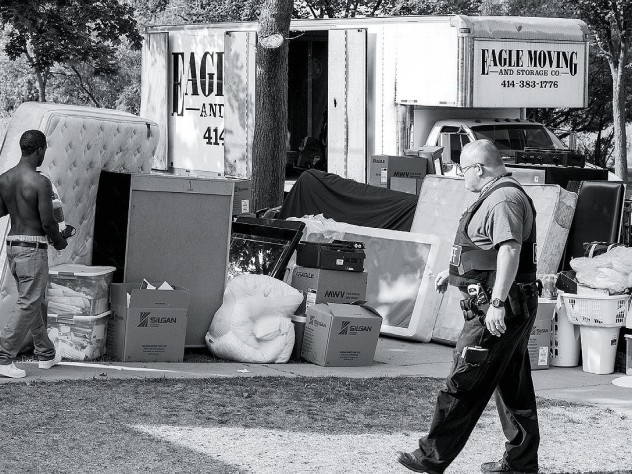
Inclusionary Zoning Speeds Gentrification, High Rents, Destroys Neighborhoods
By Gavrielle Gemma
Eviction Crisis in New Orleans:
- One in every 19 renter households in New Orleans faced a court-ordered eviction in 2017.
- One in four black renter households faced a court-ordered eviction between 2015 and 2017.
- The overall eviction rate in New Orleans is nearly double the rate of evictions nationally.
Study done by Loyola law professor Davida Finger and the Jane Place Neighborhood Sustainability Initiative
Working class New Orleanians, especially in the Black community, know that rents are too high and wages too low, and that we have no security in our homes. We are being driven out of many neighborhoods like Treme, the Marigny, the Bywater, Mid-city and more. Black homeownership is way down and the price of buying a house in Gentilly is out of reach. Long time home owners are being forced out by higher taxes in gentrified areas or by newly discovered code violation fines. We travel longer distances to jobs where there is no parking and we suffer with an underfunded bus system. There is no question that city policies favoring developers and landlords have fostered this gentrification.
An independent movement of working-class renters needs to fight for rent control, against exemptions for developers, against evictions and fines and the racist policies these all entail. Long time home owners in Black communities should pay pre-Katrina taxes, not gentrification taxes which push them from their homes. We are told that the state controls tenant issues. Yet a militant movement could win change. In the 1930’s workers blocked evictions and moved people back into their homes.
Politicians and even some housing nonprofits favor the supposed remedy known as “inclusionary zoning” which gives developers “incentives” (millions of dollars in tax exemptions) to build if they set aside a few so-called moderate-income apartments. This scheme only furthers gentrification. Once the new development is built, all the rents in the neighborhood go up and people lose more housing than was gained. The racial composition and cultural character of the neighborhood changes as well. This scheme provides a cover for politicians to seem as they are doing something about the housing crisis while still allowing gentrification to continue unchecked.
The example of the American Can apartments shows how “inclusionary zone” fails lower income renters and the broader community. This former factory was renovated with tax exemptions on the condition that the developers set aside a few apartments. The city agreed that the developer could end this arrangement over time so the owner proceeded to evict these tenants immediately on that date. Meanwhile this speeded up gentrification, displacing many other tenants and homeowners from the neighborhood.
While former mayor Mitch Landreiu was traveling the country preaching civil rights, he boasted in 2017 in a speech to business owners that the real estate market was booming, and that New Orleans was “becoming the city he always wanted.” He bragged about the influx of new professionals moving into the city. Wages stayed low and racist income disparity grew. These new, mostly white professionals basically treat Black workers as if they exist to serve them while they party.
We know landlords and developers are greedy. But it is the complicity of city and state officials—upon whom they lavish campaign contributions— that enables them to run amok with their greed. These real estate developers donated not only to the campaigns for Landrieu but also to Mayor Cantrell and the council members (see State Ethics Commission reports). The policies that these campaign donations buy include favored zoning changes, tax exemptions, special loans and a pledge of silence regarding the racist impacts that these policies encourage. They are aided by the non-elected Planning Commission, which is appointed by the mayor and city council, and currently made up of a majority of rich white real estate developers.
Across the country, tenants’ movements are fighting back. A united fight for rent control, anti-eviction laws and safeguards for working class homeowners is needed now.
